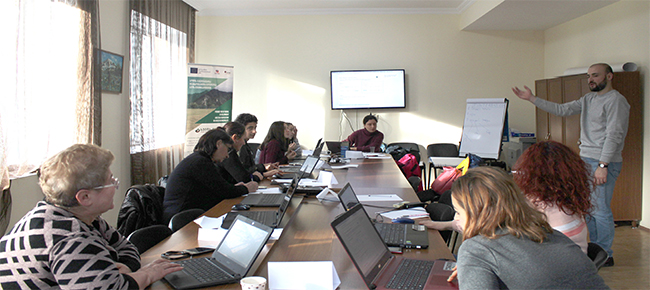Training in Practical Marketing for First Rural Development Grant Competition Beneficiaries in Khulo Municipality


On December 12-15, practical marketing training was conducted for 20 guesthouse owners in Khulo municipality, aimed at enhancing their knowledge and introducing the marketing tools necessary for the development of their respective businesses.
The 4-day course served the first rural development grant competition beneficiaries, with the support of the European Union (EU), under the ENPARD Khulo project, and was conducted by trainers from PMC Research: Mariam Tabagari and Giorgi Berechikidze.
During the course, participants became acquainted with: how to determine target segments and positioning; how to determine a marketing strategy for their company; how to create and manage Booking.com and Airbnb.com accounts; how to establish and maintain visibility on Google My Business; and how to create and manage profile pages on social media networks. All of these tools are necessary for businesses to attract new customers and increase sales.
“The training was very practical for me. During the training, I created a social media page for my guesthouse, and I registered on Booking.com and Airbnb.com. This will help me to attract more guests and my revenues will increase as well,” noted Eter Meladze, owner of the guesthouse “Qaravani.”
“Knowledge gained during the training will be useful for my agritourism farming service’s development. It will help me to attract more people to my guesthouse and to diversify my services,” noted Zebur Iakobadze, winner of the first round of the ENPARD Khulo grant competition.
Using the knowledge acquired at the training, participants will continue to manage and improve their already-established social media and business accounts/pages to increase customer awareness and increase their revenues accordingly.
The project is being implemented by Caritas Czech Republic in Georgia (CCRG) in cooperation with partner organizations, PMCG Research and Croatian Rural Development Network (HMRR), with financial support from the European Union, under Phase II of the European Neighbourhood Programme for Agriculture and Rural Development Program (ENPARD).